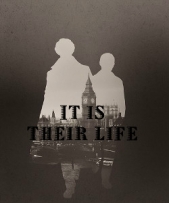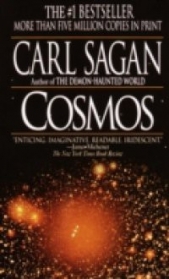The Schopenhauer Cure

The Schopenhauer Cure читать книгу онлайн
Внимание! Книга может содержать контент только для совершеннолетних. Для несовершеннолетних чтение данного контента СТРОГО ЗАПРЕЩЕНО! Если в книге присутствует наличие пропаганды ЛГБТ и другого, запрещенного контента - просьба написать на почту [email protected] для удаления материала
history, a game which empowered the leaders and satisfied the congregation`s lust for
submission.
But now, with death standing next to him, Julius noted that his vehemence had lost
its bite. Maybe it was simplyimposed ritual he disliked. Perhaps a good word could be
found for a little personal creative ceremony. He was touched by the newspaper
descriptions of the firemen at ground zero in New York, stopping, standing, and
removing hats to honor the dead as each pallet of newly discovered remains was brought
to the surface. Nothing wrong with honoring the dead...no, not the dead, but honoring the
life of the one who died. Or was it something more than honoring, more than sanctifying?
Wasn`t the gesture, the ritual of the firemen, also signifying connectivity? The
recognition of their relationship, their unity with each victim?
Julius had a personal taste of connectivity a few days after his fateful meeting with
his dermatologist when he attended his support group of fellow psychotherapists. His
fellow doctors were stunned when Julius revealed the news of his melanoma. After
encouraging him to talk himself out, each group member expressed his shock and sorrow.
Julius couldn`t find any more words, nor could anyone else. A couple of times someone
started to talk but did not, and then it was as if the group agreed nonverbally that words
were not necessary. For the final twenty minutes all sat in silence. Such prolonged
silences in groups are almost invariably awkward, but this one felt different, almost
comforting. Julius was embarrassed to admit, even to himself, that the silence felt
«sacred.» Later it occurred to him that the members not only were expressing grief but
were also removing their hats, standing at attention, joining and honoring his life.
And perhaps this was a way of honoring their own lives, Julius thought. What else
do we have? What else other than this miraculous blessed interval of being and self–awareness? If anything is to be honored and blessed, it should simply be this—the
priceless gift of sheer existence. To live in despair because life is finite or because life
has no higher purpose or embedded design is crass ingratitude. To dream up an
omniscient creator and devote our life to endless genuflection seems pointless. And
wasteful, too: why squander all that love on a phantasm when there seems too little love
to go around on Earth as it is? Better to embrace Spinoza`s and Einstein`s solution:
simply bow one`s head, tip one`s hat to the elegant laws and mystery of nature, and go
about the business of living.
These were not new thoughts for Julius—he had always known of finiteness and
the evanescence of consciousness. But there is knowing andknowing. And death`s
presence on the stage brought him closer to really knowing. It was not that he had grown
wiser: it was only that the removal of distractions—ambition, sexual passion, money,
prestige, applause, popularity—offered a purer vision. Wasn`t such detachment the
Buddha`s truth? Perhaps so, but he preferred the path of the Greeks: everything in
moderation. Too much of life`s show is missed if we never take off our coats and join in
the fun. Why rush to the exit door before closing time?
After a few days, when Julius felt calmer with fewer sweeps of panic, his thoughts turned
to the future. «One good year» Bob King had said, «no guarantees, but it would not be
unreasonable to hope for at least a year of good health.» But how to spend that year? One
thing he resolved was not to make that one good year a bad year by grieving that it was
not more than a year.
One night, unable to sleep and craving some comfort, he restlessly browsed in his
library. He could find nothing written in his own field that seemed even remotely relevant
to his life situation, nothing pertaining to how should one live, or find meaning in one`s
remaining days. But then his eye fell upon a dog–eared copy of Nietzsche`sThus Spake
Zarathustra. Julius knew this book well: decades ago he had thoroughly studied it while
writing an article on the significant but unacknowledged influence of Nietzsche on
Freud.Zarathustra was a brave book which more than any other, Julius thought, teaches
how to revere and celebrate life. Yes, this might be the ticket. Too anxious to read
systematically, he flipped the pages randomly and sampled some of the lines he had
highlighted.
«To change вЂit was` into вЂthus I willed it`—that alone shall I call redemption.»
Julius understood Nietzsche`s words to mean that he had to choose his life—he had
to live it rather than be lived by it. In other words he should love his destiny. And above
all there was Zarathustra`s oft–repeated question whether we would be willing to repeat
the precise life we have lived again and again throughout eternity. A curious thought
experiment—yet, the more he thought about it, the more guidance it provided:
Nietzsche`s message to us was to live life in such a way that we would be willing to
repeat the same life eternally.
He continued flipping the pages and stopped at two passages highlighted heavily in
neon pink: «Consummate your life.» «Die at the right time.»
These hit home. Live your life to the fullest; and then, and only then, die. Don`t
leave any unlived life behind. Julius often likened Nietzsche`s words to a Rorschach
exam; they offered so many opposing viewpoints that the readers` state of mind
determined what they took from them. Now he read with a vastly different state of mind.
The presence of death prompted a different and more enlightened reading: in page after
page, he saw evidence of a pantheistic connectedness not previously appreciated.
However much Zarathustra extolled, even glorified solitude, however much he required
isolation in order to give birth to great thoughts, he was nonetheless committed to loving
and lifting others, to helping others perfect and transcend themselves, to sharing his
ripeness.Sharing his ripeness —that hit home.
ReturningZarathustra to its resting place, Julius sat in the dark staring at the lights
of cars crossing the Golden Gate Bridge and thinking about Nietzsche`s words. After a
few minutes Julius «came to»: he knew exactly what to do and how to spend his final
year.He would live just the way he had lived the previous year—and the year before that
and before that. He loved being a therapist; he loved connecting to others and helping to
bring something to life in them. Maybe his work was sublimation for his lost connection
to his wife; maybe he needed the applause, the affirmation and gratitude of those he
helped. Even so, even if dark motives played their role, he was grateful for his work. God
bless it!
Strolling over to his wall of file cabinets, Julius opened a drawer filled with charts and
audiotaped sessions of patients seen long ago. He stared at the names—each chart a
monument to a poignant human drama that had once played itself out in this very room.
As he surfed through the charts, most of the faces immediately sprang to mind. Others
had faded, but a few paragraphs of notes evoked their faces, too. A few were the truly
forgotten, their faces and stories lost forever.
Like most therapists, Julius found it difficult to seal himself off from the
unremitting attacks on the field of therapy. Assault came from many directions: from
pharmaceutical companies and managed care, which sponsored superficial research























